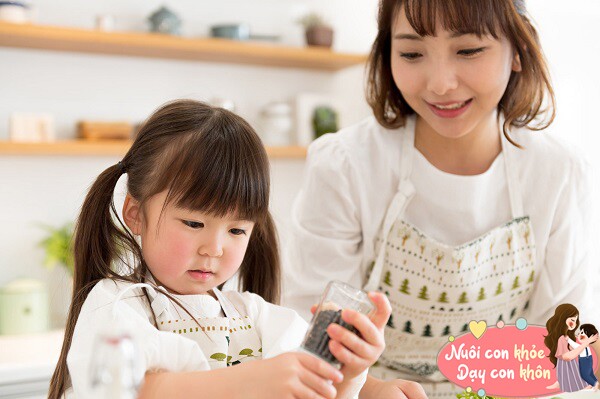Most parents’ initial reaction is to scold and yell at their children to admit and correct their mistakes. In reality, this approach can backfire, affecting their psychological development and family relationships.
According to psychologist Li Meijin, parents who master the skills of praise and criticism help their children progress naturally, instead of resenting their parents when scolded.

What are the harms of constantly criticizing children?
Children develop a distorted sense of self-worth
If parents constantly deny and criticize their children, the children will likely question themselves and feel they are not good enough.
This can lead to a loss of self-confidence and a sense of security, leading to lower expectations and limited future development.
As a result, children may not recognize their strengths and feel incapable of accomplishing anything.

Constant scolding and criticism can lead to a distorted sense of self-worth in children.
Feelings of disappointment and discouragement
Children who are frequently scolded may feel disappointed and discouraged if they cannot match the achievements of others, even in small tasks.
Continuous denial and criticism from parents can make children feel like the whole world is against them, leading to possible psychological issues such as rebellion and depression.
Distance from parents
Constant scolding and criticism can create a distance between parents and children, and in some cases, even lead to resentment towards the parents.
These experiences can impact their emotional development, leaving children feeling unloved and unaccepted.

The benefits of regularly praising children
Developing a healthy sense of self-worth
For children, praise can be a powerful tool for positive development. When parents express their admiration for their children’s accomplishments, it motivates them to work harder and live up to their parents’ expectations.
Sincere, specific, and timely praise is crucial for a child’s development. It makes children feel recognized and encouraged, boosting their self-esteem, motivation to learn and improve, and strengthening their bond with their parents.

Praise helps children develop a healthy sense of self-worth and encourages them to strive for improvement.
Fostering a positive attitude and character
Children who grow up with regular praise and affirmation from their parents tend to be more positive, cheerful, and optimistic. They are eager to take on challenges and are quick to adjust their mindset when faced with setbacks.
The impact of parental praise is profound and long-lasting, providing children with the motivation to push themselves and drive their success.

Psychologist Li Meijin emphasizes the importance of skillful praise and criticism
Praising children should be purposeful and not arbitrary
Some parents, aware that praise is beneficial, may overdo it, which can confuse children and make the praise seem insincere.
Praise should be purposeful and based on the child’s actual achievements and efforts. Parents should identify the specific strengths and areas for improvement, encouraging children to build on their strengths and work on their weaknesses.
An effective way to praise is to focus on specific accomplishments and efforts. Instead of saying, “You’re so smart,” try, “I’m proud of how hard you worked to finish your homework on time. Well done!” This helps children understand what they are being praised for and encourages them to continue their good work.

Praise should be purposeful and based on the child’s actual achievements and efforts.
Additionally, parents should provide guidance on areas for improvement, helping children develop self-awareness and a growth mindset. This approach fosters comprehensive development and boosts children’s confidence.
Sincere, specific, and timely praise communicates care and trust, motivating children to learn and improve.
Constructive criticism can be beneficial if delivered skillfully
While many believe that reprimanding children is harmful, psychologist Li Meijin asserts that timely and appropriate criticism can be beneficial. Parents should guide children to recognize their mistakes and offer constructive feedback rather than merely lecturing or scolding them.
Both praise and criticism can be double-edged swords. Therefore, parents must be skillful in their delivery to ensure their children’s healthy development and positive character-building.
The Storyteller: A Mother’s Belated Realization of Her Mistakes with Her Bipolar Daughter
“Parental influence is one of the most significant factors in a child’s development. When parents frequently engage in negative talk and criticism of others, it can have a profound impact on their child’s emerging personality and psychological well-being. It shapes how they view themselves and others, potentially leading to a distorted sense of self and unhealthy relationships.”




































